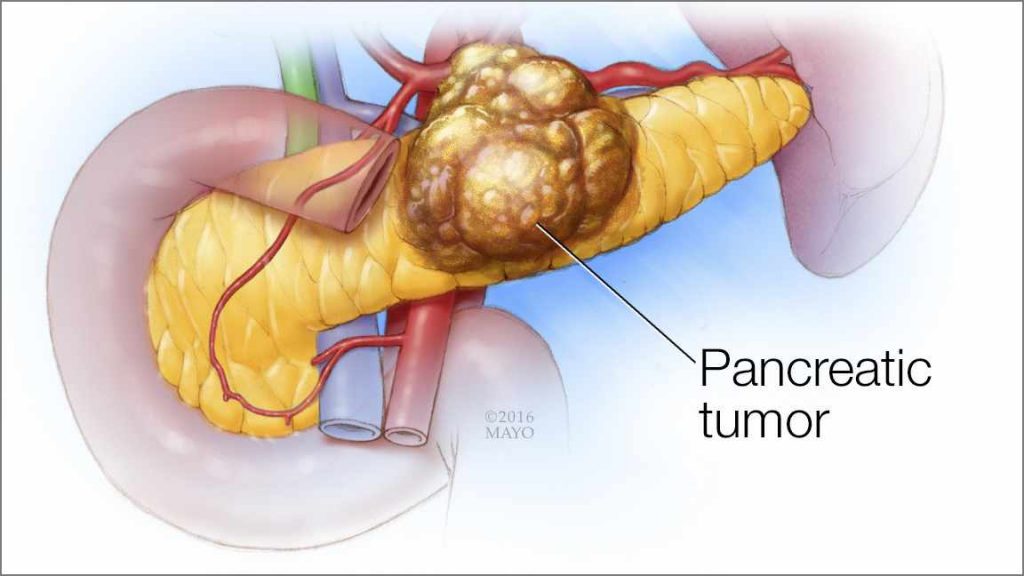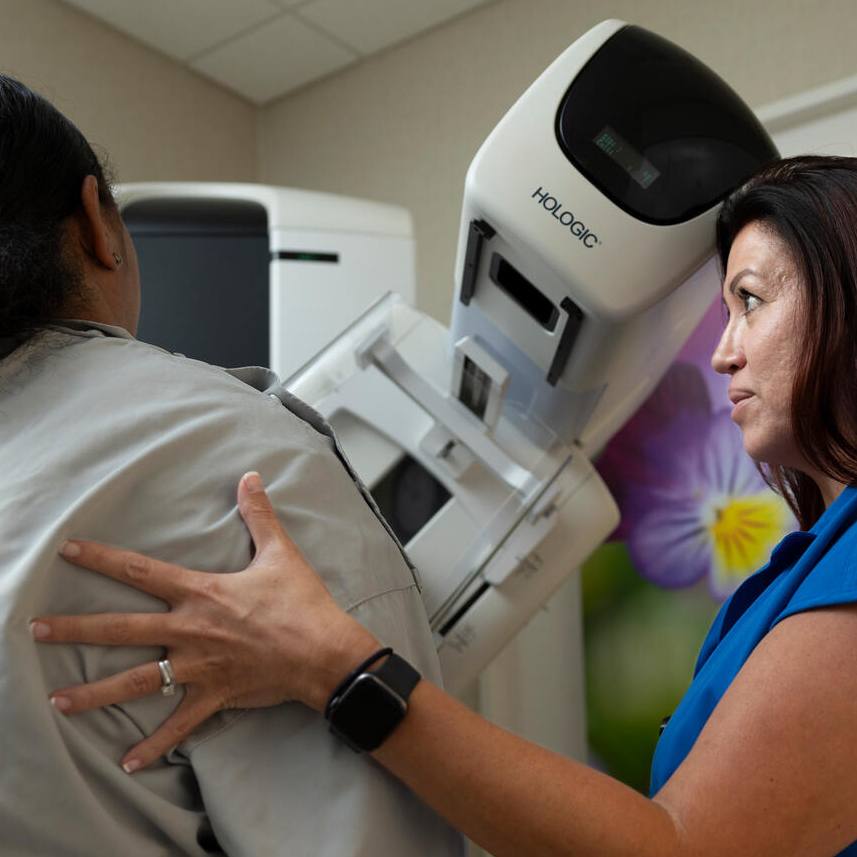-
Cancer
Researchers Identify Best Drug Therapy for Rare, Aggressive, Pancreatic Cancer
 JACKSONVILLE, Fla. — Each year, about 200 to 400 Americans develop pancreatic acinar cell carcinoma, a rare form of pancreatic cancer that has no effective standard of care. A study involving researchers on Mayo Clinic’s Florida and Rochester campuses has found that the chemotherapy drug oxaliplatin is effective in stopping the growth of this cancer. Their discoveries were published May 10 in the Journal of Translation Medicine.
JACKSONVILLE, Fla. — Each year, about 200 to 400 Americans develop pancreatic acinar cell carcinoma, a rare form of pancreatic cancer that has no effective standard of care. A study involving researchers on Mayo Clinic’s Florida and Rochester campuses has found that the chemotherapy drug oxaliplatin is effective in stopping the growth of this cancer. Their discoveries were published May 10 in the Journal of Translation Medicine.
Researchers used tumor tissue biopsied from a patient whose cancer spread to the liver to develop the first patient-derived tumor xenograft, or avatar mouse model, which enabled testing of a number of drugs.
Oxaliplatin stopped tumor growth after only three treatments, and the tumor did not grow back after treatment ended.
“We showed the tumor growth was inhibited by a number of drugs, but oxaliplatin was the standout drug,” says John A. Copland III, Ph.D., a cancer biologist and the study’s principal investigator. “Our hope is that information gleaned from our study will provide new options for patients diagnosed with this rare form of cancer.”
Patients live an average 49 months after being diagnosed with pancreatic acinar cell carcinoma. They only live about 14 months once the cancer has spread, or metastasized.
MEDIA CONTACT: Kevin Punsky, Mayo Clinic Public Affairs, 904-953-0746, punsky.kevin@mayo.edu
Sound bites with Dr. Copland are available in the download section.
Oxaliplatin inserts itself into DNA, which results in the death of multiplying tumor cells – particularly if those cells carry a DNA repair mutation. The study found that the patient tumor used in this research had a mutation in the DNA repair gene BRCA-2.
This indicates physicians may want to test patients with pancreatic acinar cell carcinoma for DNA repair gene mutations to provide a more highly individualized medicine approach toward treatment.
“This may be a breakthrough for this rare cancer,” says Gerardo Colon-Otero, M.D., an oncologist and study co-author. “Genomic testing for DNA mutations can now be performed, and, if the results are positive, those patients are candidates for platinum-based drugs, such as oxaliplatin.”
Lead author Jason Hall, Ph.D., a Mayo Clinic research fellow, also showed that the tumor began to re-express markers of normal pancreas tissue.
“This is most likely the explanation for the very prolonged response,” says Dr. Hall. “Perhaps we should explore more chemotherapy drugs that can kill cancer cells as well as revert them to a more normal state.”
Additional Mayo Clinic study co-authors are:
- Fergus J. Couch, Ph.D.
- Steven N. Hart, Ph.D.
- Murli Krishna, M.D.
- Laura A. Marlow, M.S.
Additional co-authors are:
- Adam C. Mathias, B.S., of Delta Synthetic Co., Ltd.
- Louis K. Dawson, B.S.; William F. Durham, M.S.; Robert J. Mullin, Ph.D.; Aidan J. Synnott, Ph.D.; Daniel L. Small, Ph.D.; Julia Schüler, Ph.D. ,Kenneth A. Meshaw, Ph.D.; of Charles Rivers Discovery Services
- Daniel von Hoff, M.D., of TGen
The study was supported in part by National Institutes of Health/National Cancer Institute Grant R01CA136665 (Dr. Copland) and a generous gift from a grant for Rare Cancers from Dr. Ellis W. and Dona Brunton (Dr. Colon-Otero and Dr. Copland).
Competing interests:
- Copland and Marlow received royalties from the patient-derived tumor xenograft model licensed to Charles River Laboratories International, Inc.
- Mathias was an employee of Charles River Laboratories International, Inc., and now is employed by Delta Synthetic Co., Ltd.
###
About Mayo Clinic
Mayo Clinic is a nonprofit organization committed to medical research and education, and providing expert, whole-person care to everyone who needs healing. For more information, visit http://mayoclinic.com or https://newsnetwork.mayoclinic.org.







